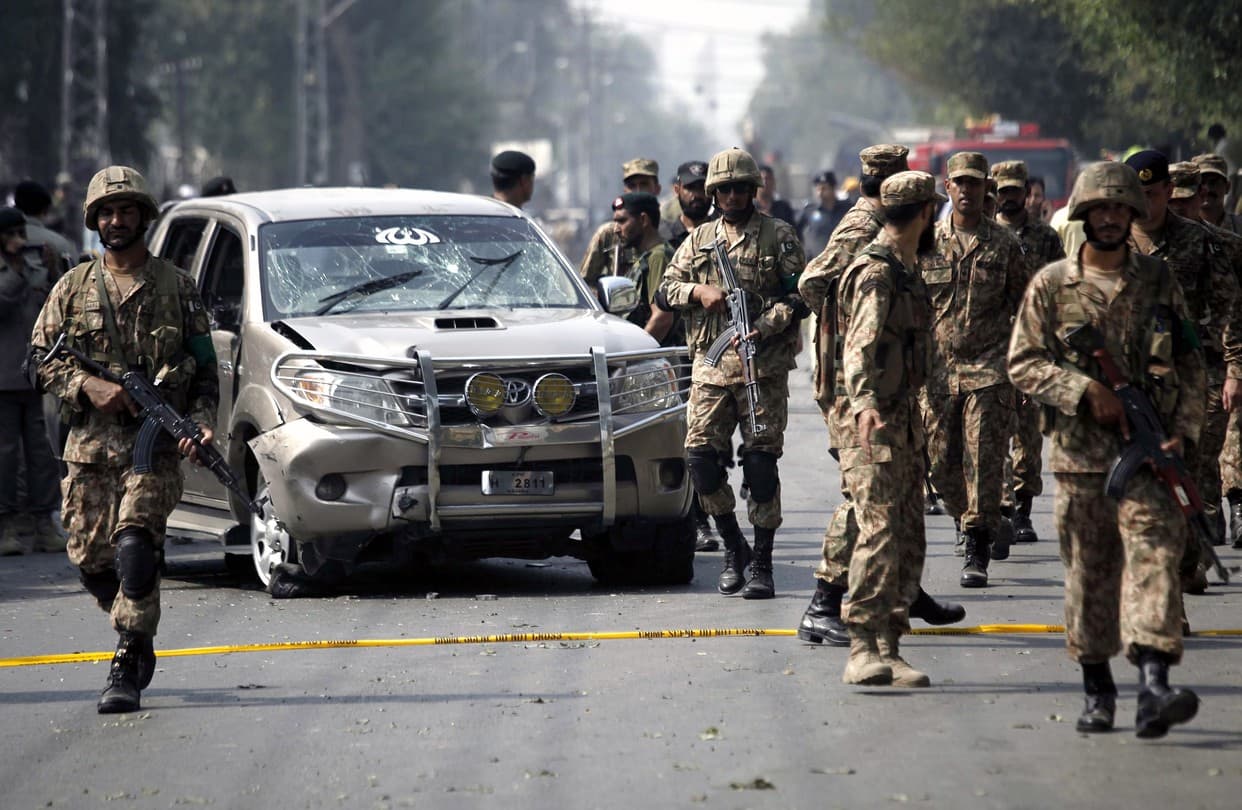Suicide Bombers Strike Peshawar Paramilitary Headquarters, Three Killed
Multiple attackers including at least one suicide bomber attacked the Frontier Constabulary headquarters in Peshawar today, killing three paramilitary personnel and wounding several others. The assault underscores a renewed security challenge in Pakistan's northwest, with implications for regional stability, civilian safety, and economic confidence.

Multiple attackers including at least one suicide bomber struck the Frontier Constabulary headquarters in Peshawar today, killing three paramilitary personnel and wounding several others, local officials and hospital statements said. The assailants entered the compound after one attacker struck the main gate and then detonated explosives inside the facility while others opened fire with small arms. Security forces returned fire and killed the remaining attackers, officials said.
Emergency teams transported the wounded to city hospitals where medical staff treated multiple casualties. Local press and hospital statements reported that authorities cordoned off the area and launched clearance operations amid concerns about unexploded ordnance. The compound remained under tight security as bomb disposal teams and investigators swept the perimeter and adjacent streets.
No group immediately claimed responsibility for the attack. Local media cited militant factions as suspects and noted a recent uptick in assaults in Pakistan's northwest amid heightened cross border tensions. The incident occurs against a backdrop of recurring violence in the region, where security forces and paramilitary units routinely confront armed groups that exploit porous frontiers and complex local dynamics.
The assault on a frontline paramilitary installation carries operational and policy significance. The Frontier Constabulary plays a central role in internal security and border management, and an attack on its headquarters demonstrates both tactical boldness by attackers and continuing vulnerabilities in protective measures. Authorities in Islamabad face immediate decisions about force posture, base defenses, and rules of engagement, alongside longer term choices on intelligence sharing and border coordination with neighboring countries.
There are also economic consequences to consider. Security shocks of this intensity can weigh on investor sentiment and business confidence, particularly in provinces already perceived as volatile. Foreign investors and domestic markets typically watch for spillovers that could disrupt transport, logistics, and trade corridors that cross the northwest. Governments often respond to such incidents with accelerated security spending and contingency measures that can reshape budget priorities and crowd out other public investments.
Analysts tracking regional trends will monitor whether the attack marks a short lived flare up or a sustained deterioration in security. A pattern of repeated high profile strikes could amplify risk premia for projects and industries dependent on predictable operations and cross border commerce. For households and firms in the immediate area, the human toll and the disruption to daily life are immediate and tangible, as hospitals continue to treat the wounded and families await news of those affected.
Security forces continue clearance work at the scene and an investigation is under way to determine the precise chain of events and to identify the attackers and any wider networks involved. The government faces pressure to demonstrate it can protect key installations and to articulate measures that reduce threat recurrences while maintaining public confidence in law and order.
&w=1920&q=75)

